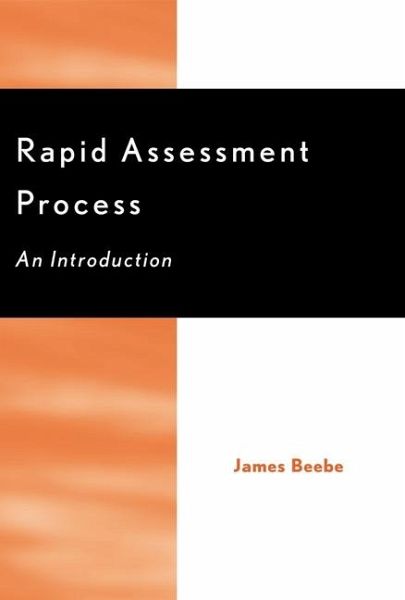Nicht lieferbar

Rapid Assessment Process
An Introduction
Rapid Assessment Process is the first introduction to the RAP group of ethnographic methods and techniques that provide field-based research findings for policymakers and program planners. Prepared by an international development professional, it provides clear guidelines on producing high quality research in a fraction of the time taken by traditional ethnography.













